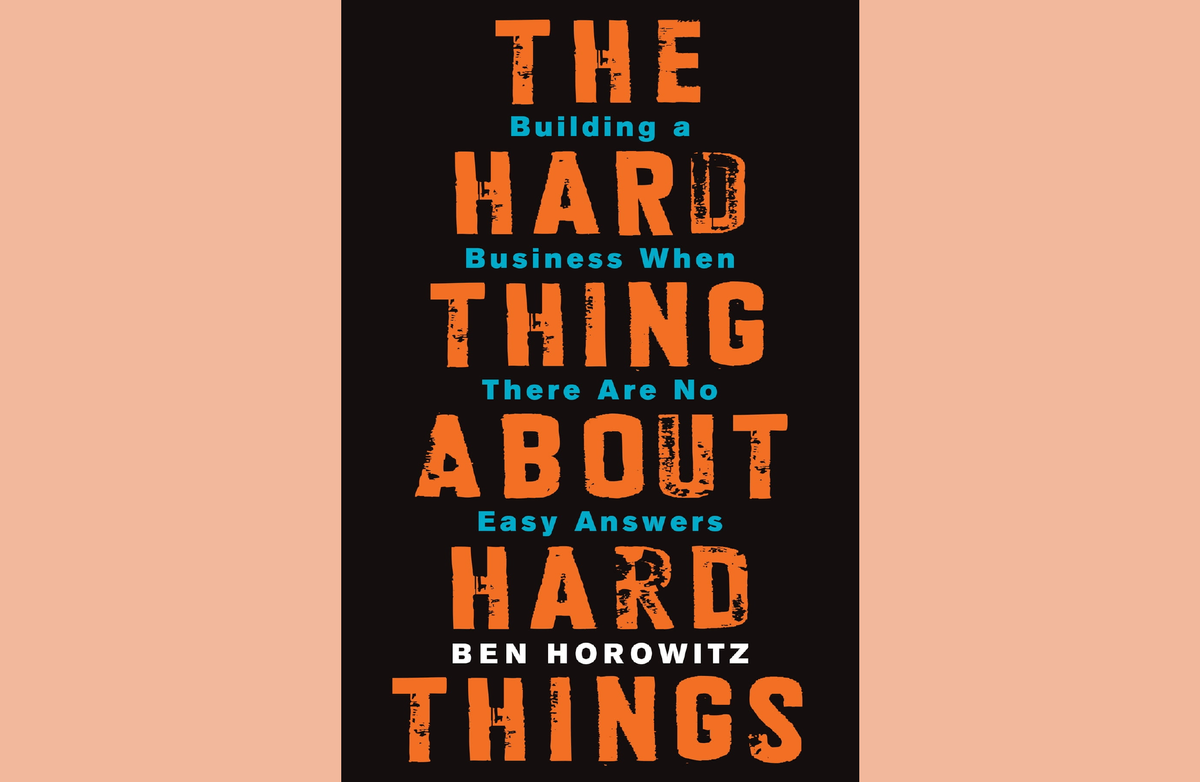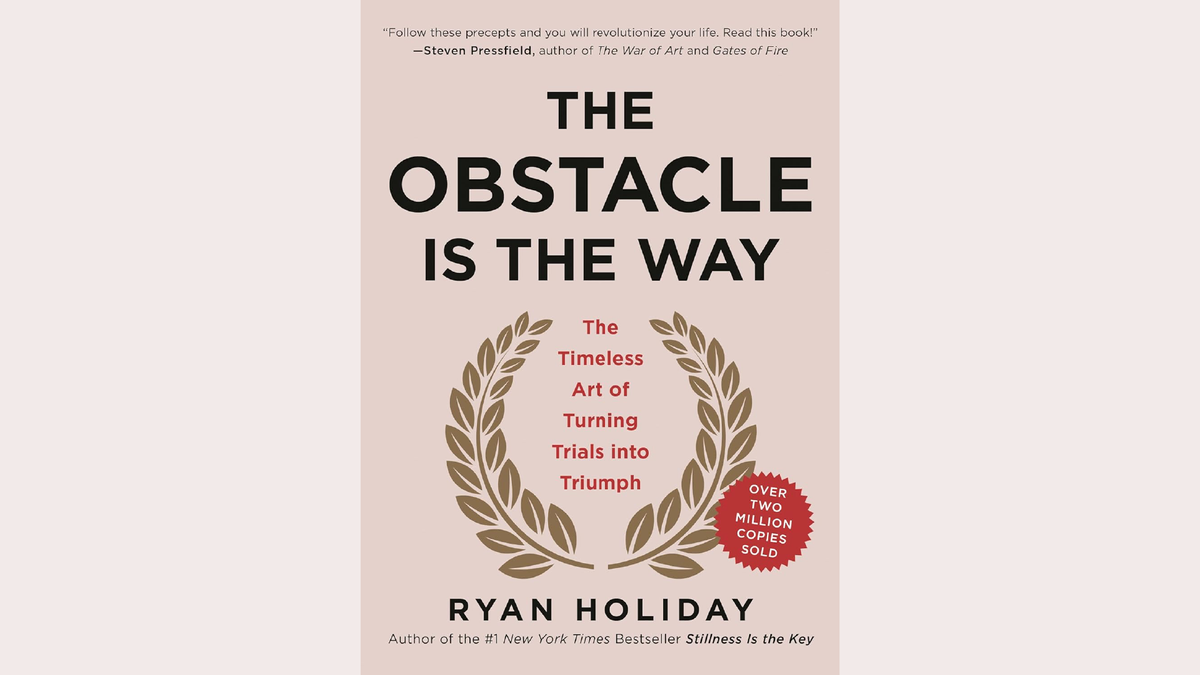The Entrepreneur's Journey: Embracing Challenges and Cultivating Resilience
Explore the entrepreneurial journey through the lens of Jeff Bezos' success with Amazon. Learn how embracing challenges and cultivating resilience are key to creating value and achieving long-term success.

Embarking on the entrepreneurial journey is like setting out on a grand adventure. It's filled with excitement, discovery, and, of course, numerous challenges. These challenges are not roadblocks; they are opportunities for growth and success. To navigate this journey successfully, two key concepts are essential: embracing the struggle and cultivating your will. Let's delve into these themes with an energetic, forward-thinking, and socially conscious approach.
Embracing the Struggle: The Path to Real Value
I learned that embracing challenges and actively seeking out problems is the cornerstone of entrepreneurial success. Imagine a river carving through the mountains, shaping the landscape with each twist and turn. This happens when we face problems head-on – we shape our businesses, create value, and innovate.
In the entrepreneurial world, problems are not to be feared; they are to be welcomed. When I encounter a challenge, whether it's market validation, financial hurdles, or operational issues, I see it as an opportunity to innovate and improve. Each problem solved is a step forward, a proof of concept, and a validation of my business model.
Consider this: a tech startup struggling to gain user traction. By embracing this struggle, conducting thorough market research, and iterating on feedback, the startup can refine its product to meet customer needs better. This process of constant improvement is where real value is created. It's not about avoiding problems but diving into them, solving them, and emerging stronger.

Book Recommendation: "The Hard Thing About Hard Things" by Ben Horowitz provides a candid and insightful look into the realities of building and running a business. He emphasizes embracing difficult situations and offers practical advice on navigating challenges. Horowitz's experiences illustrate that the most valuable lessons come from the most challenging times, reinforcing the theme of embracing the struggle.
Cultivate Your Will: Sustain Your Efforts Through Resilience
Will is the inner strength that sustains us through adversity. It's like the roots of a mighty oak tree, grounding us and keeping us steadfast even when the storm rages. Developing a resilient will is crucial for entrepreneurs because it helps maintain momentum even when external circumstances are discouraging.
Resilience is about returning from failures, learning from them, and striving toward our goals. It's the commitment to our vision that keeps us pushing forward. For instance, a social enterprise might face funding challenges and market skepticism. Yet, by cultivating a resilient will, the founders can stay focused on their mission, adapt to changes, and find new ways to achieve their goals.
This inner strength is not just about personal endurance; it's about inspiring the entire team. Demonstrating resilience sets a powerful example, encouraging my team to stay committed and motivated. This collective resilience drives long-term success and fosters a culture of perseverance and determination.

Book Recommendation: "The Obstacle Is the Way" by Ryan Holiday draws on ancient Stoic philosophy to present a powerful formula for turning adversity into an advantage. His book provides timeless wisdom on cultivating resilience and using obstacles as opportunities for growth. By adopting this mindset, entrepreneurs can develop the willpower to sustain their efforts through the toughest challenges.
The Entrepreneurial Ecosystem: Tests, Allies, and Enemies
In the entrepreneurial journey, we encounter tests, form alliances, and face enemies. These elements are integral to our growth and development.
- Tests (Challenges):
- Market Validation: Testing the business idea in the market through customer feedback and iteration.
- Financial Hurdles: Managing cash flow, securing funding, and making sound financial decisions.
- Operational Issues: Overcoming day-to-day logistical and operational challenges.
- Allies (Friends and Helpers):
- Mentors and Advisors: Receiving guidance from experienced mentors who provide invaluable insights.
- Co-founders and Team Members: Building a robust and complementary team that shares the workload and contributes to success.
- Investors and Partners: Securing resources, networks, and credibility from financial backers and strategic partners.
- Enemies (Adversaries):
- Competitors: Identifying and strategizing against competitors to stay ahead in the market.
- Market Conditions: Navigating economic downturns, regulatory changes, and shifts in consumer behavior.
- Internal Struggles: Overcoming self-doubt, burnout, and conflicts within the team.
Conclusion: Embrace, Cultivate, and Conquer
The entrepreneurial journey is not for the faint-hearted. It's a path filled with tests that challenge our resolve, allies who support our vision, and enemies who push us to innovate. By embracing the struggle and cultivating a resilient will, we can successfully navigate this journey, creating value and driving long-term success.
Remember, each challenge is an opportunity, each setback a lesson, and each victory a testament to our resilience. Embrace the struggle, cultivate your will, and conquer the entrepreneurial journey with energy, enthusiasm, and a forward-thinking mindset. We can create a socially conscious, inclusive, and innovative future.

Case Study: Jeff Bezos - Overcoming Challenges at Amazon
Background: Jeff Bezos, the founder of Amazon, has navigated numerous challenges since launching the company in 1994. His journey through the phase of "Tests, Allies, and Enemies" offers a vivid example of how strategic decision-making and resilience can guide a startup through turbulent times to achieve global success.
Challenges Faced:
- Market Skepticism: Initially, many doubted the viability of an online bookstore. Bezos had to convince investors and consumers that a digital platform for purchasing books could succeed. "I knew that if I failed, I wouldn’t regret that, but I knew the one thing I might regret is not trying."
- Financial Pressures: Amazon faced significant financial strain, especially during its early years when profitability seemed distant. Bezos focused on long-term growth over short-term profits, a risky yet visionary move. "You have to be willing to be misunderstood if you’re going to innovate."
- Operational Hurdles: Scaling the business from an online bookstore to a global e-commerce giant involved overcoming numerous logistical challenges, such as establishing a reliable supply chain and handling customer service efficiently. "One of the only ways to get out of a tight box is to invent your way out."
Allies and Strategic Decisions:
- Mentorship and Advisory: Bezos sought advice from experienced mentors and industry veterans. These relationships provided invaluable insights and guidance, helping him navigate complex decisions.
- Building a Strong Team: He assembled a team of innovative and dedicated individuals who shared his vision. This robust and cohesive team was crucial for implementing Amazon's ambitious plans. "A brand for a company is like a reputation for a person. You earn a reputation by trying to do hard things well."
- Investor Support: Securing investment from notable venture capitalists provided the necessary funds and credibility to expand. Bezos was strategic in choosing investors who believed in Amazon’s long-term vision.
Competitors and Market Conditions:
- Rising Competition: Amazon had to continually innovate to stay ahead of competitors like Barnes & Noble and other e-commerce giants. Bezos emphasized customer obsession and innovation as key differentiators. "If you build a great experience, customers tell each other about that. Word of mouth is mighty."
- Economic Fluctuations: The company's resilience was tested by navigating through financial downturns, especially the dot-com bubble burst. Bezos' focus on customer needs and operational efficiency helped Amazon survive and thrive during tough economic times.
Outcome:
- Global Success: Through strategic decisions, embracing challenges, and maintaining resilience, Bezos transformed Amazon into one of the world's most valuable companies. "It’s not an experiment if you know it’s going to work."
- Innovation Leader: Amazon's continuous innovation in e-commerce, cloud computing, and artificial intelligence sets industry standards and reinforces its position as a market leader.
Lessons Learned: Jeff Bezos' journey exemplifies the importance of embracing struggles and cultivating resilience. By confronting challenges head-on, seeking strategic alliances, and maintaining an unwavering commitment to his vision, Bezos steered Amazon to unprecedented heights. His approach underscores the value of long-term thinking, innovation, and relentless customer focus.

Peer-reviewed Research on Resilience and Hardship
The Role of Resilience in Entrepreneurial Success: A Qualitative Study of Startup Founders by Lutfiana Dewi examines resilience in entrepreneurial success through the experiences of startup founders. In-depth interviews reveal resilience as key to overcoming setbacks, fostering innovation, and maintaining motivation. Defined as the ability to bounce back, adapt, and persevere, resilience involves cognitive, emotional, and behavioral aspects.
Key challenges include financial constraints, market uncertainties, competition, and personal stressors. Founders use strategies like reframing challenges, seeking social support, and practicing mindfulness to build resilience. Resilient entrepreneurs show persistence, adaptability, and creative problem-solving, aiding long-term success.
The study highlights the need for resilience skills and support mechanisms in entrepreneurial ecosystems, suggesting programs, mentorship, and networks to help entrepreneurs. Despite limitations, it contributes to understanding resilience in entrepreneurship and offers support strategies for challenging environments.
"The Psychology of Entrepreneurship" by Frese, M., & Gielnik, M. M. (2014) was published in the Annual Review of Organizational Psychology and Organizational Behavior. This review explores the psychology of entrepreneurship, highlighting meta-analytic findings that show a strong association between personality traits like self-efficacy and the need for achievement and entrepreneurial success. The review discusses how constructs such as entrepreneurial alertness, business planning, financial capital, and entrepreneurial orientation can be better understood psychologically.
It elaborates on applying traditional psychological constructs in entrepreneurship, enhancing industrial and organizational psychology knowledge regarding practical intelligence, cognitive biases, goals, personal initiative, passion, and affect. The review concludes by providing a framework for the psychology of entrepreneurship and suggesting directions for future research.
"Ordinary Magic: Resilience Processes in Development" by Ann S. Masten. The study of resilience in development has challenged negative assumptions about children facing disadvantage and adversity. Research reveals that resilience is every day and typically arises from standard human adaptive systems. The most significant threats to development are those that undermine these protective systems. Recognizing that resilience stems from ordinary processes provides a positive perspective on human development and offers guidance for policies and practices to support at-risk children.
"The Construct of Resilience: A Critical Evaluation and Guidelines for Future Work" by Suniya S. Luthar, Dante Cicchetti, and Bronwyn Becker. This paper critically appraises the concept of resilience, defined as maintaining positive adaptation despite adversity. It addresses criticisms such as ambiguities in definitions, variability in risks and outcomes, instability of resilience, and its theoretical usefulness. The authors propose solutions for valid criticisms and clarify misunderstandings for less valid ones. While resilience research has significant potential to enhance understanding of processes affecting at-risk individuals, its potential will remain limited without ongoing attention to conceptual and methodological issues.


